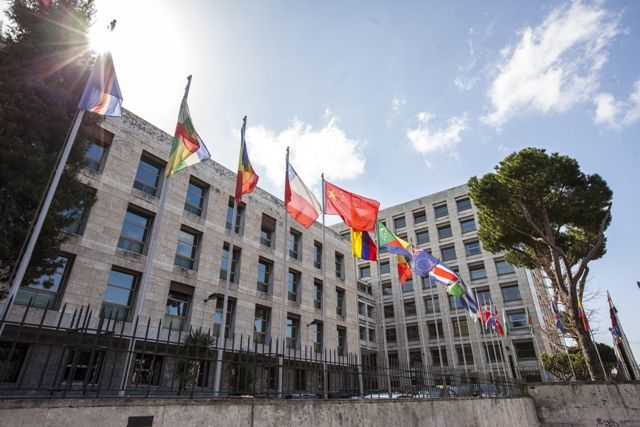Wholesale Markets are a guarantee for food security. United Nations’ words
Rome and Italy were the protagonists of the UN Conference on World Food Security, the second summit organised by FAO on this topic.
Over 20 Heads of State and Government took part in the Conference, a sign of our country’s indisputable success in front of the world. It is, in fact, further confirmation of Italy’s commitment to promoting the universality of the right to healthy food: Italy was in fact not only the host nation but also the promoter and organiser of the event. And in this perspective, as the headquarters of the UN food agencies, the World Food Programme and IFAD, the International Fund for Agricultural Development, Rome can present itself as the world food capital.
It was precisely on this theme that Prime Minister Giorgia Meloni’s message focused, almost an ultimatum to the world: food security and the availability of resources are today the crucial elements of the development and economic growth of all peoples.
In developing countries, the need to ensure sustainable and resilient production systems capable of adapting to climate change, overcoming the inevitable system shocks, is now at the centre of government agendas. This urgency is coupled with another potentially explosive variable: that of out-of-control population growth, an emergency that increasingly jeopardises the need for healthy and nutritious food.
As IFAD President Alvaro Lario also pointed out, by the end of 2022 there are 122 million more people living in nutritional deprivation than in 2019: a dramatic estimate considering that one third of the food produced globally is wasted due to inadequate supply systems.
In rich countries, the challenge is to ensure a healthy diet for all, while at the same time combating food wastage also linked to wrong consumer habits.
In this serious and complex context, it seems increasingly evident that Wholesale Markets are the real infrastructures of the system, crucial elements able, due to their position in the food chain and their articulated capacity to adapt, to respond to the challenges of our time.
These guarantee healthy and diversified food on a daily basis, synonymous with quality and safety. These are resilient facilities that are able to offer their services without interruption even in times of crisis, such as during the Covid-19 pandemic, guaranteeing a continuous supply of fresh and ultra-fresh products to the population.
And since, as emerged during the Conference, it is necessary to develop activities that help better organise the value chains of agricultural food systems, whose most fragile links are often the producers, Wholesale Markets, in addition to representing the excellence meeting point between supply and demand, bring agricultural producers closer to the main consumption basins, which would otherwise be difficult to access, offering even the smallest agricultural production the possibility of marketing its products on a large scale.
Even the smallest companies see the results of their entrepreneurial efforts guaranteed on a day-to-day basis, since Markets are facilitated to bring together the primary sector, supply chains and consumers and there is a strong push towards more resilient and sustainable systems.
The Wholesale Market System also guarantees traceability, smoothness in the distribution process and optimal preservation of fresh produce, which allows for a significant reduction in food waste.
So if it is true that the primary function of any civilised country is to ensure healthy, inclusive, sustainable and resilient food systems, it is worth – and the FAO Conference in Rome made this explicit – that institutions recognise, value and support Wholesale Markets in their development programmes and policies. This is an option that can no longer be postponed.





